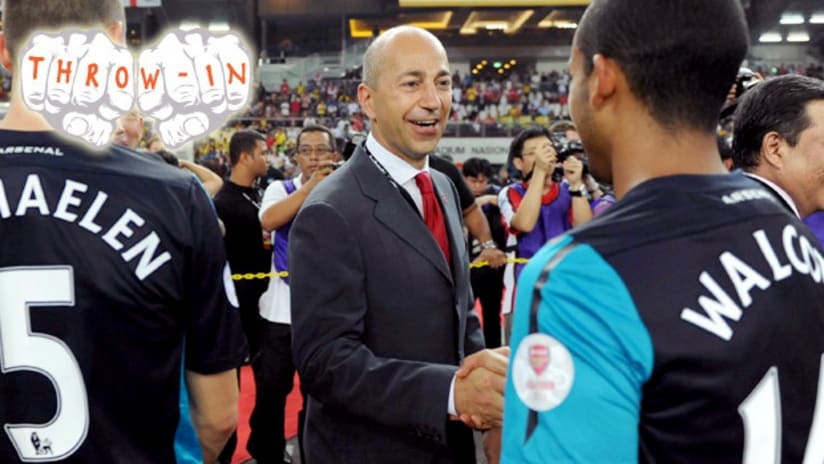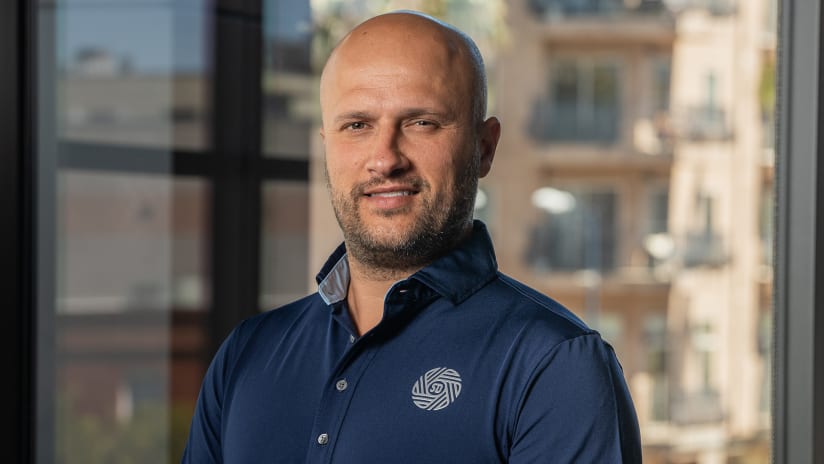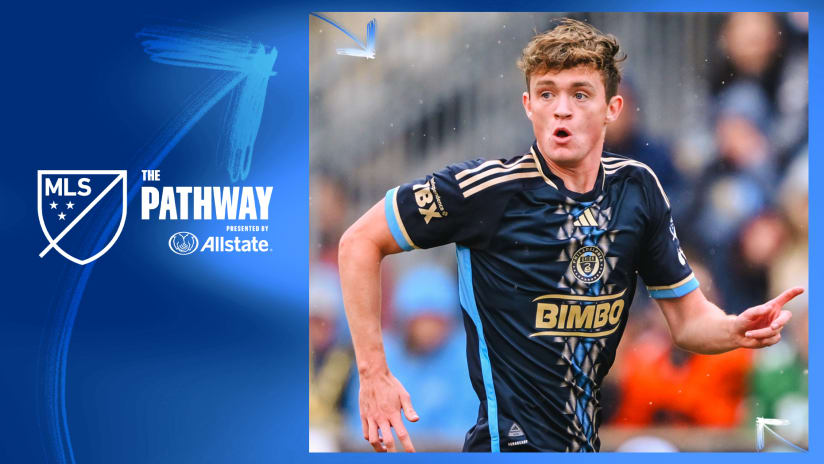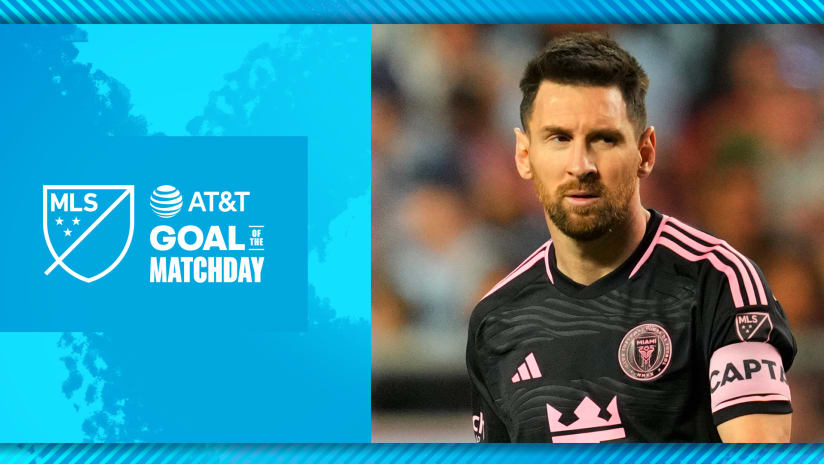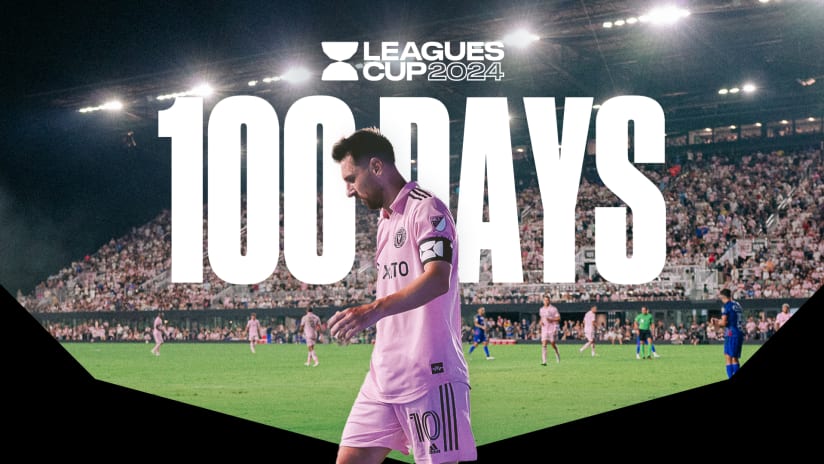Photo courtesy of Arsenal FC
LONDON – Ivan Gazidis’ office adjacent to Emirates Stadium is a virtual lesson in Arsenal FC history.
A glass cabinet facing his chair is filled with dozens of trophies and mementos collected by the club over the years. Behind his desk is a photo featuring every single player ever to suit up for the Gunners during the club’s 93 years at their former home of Highbury.
The very walls are museum pieces, 80-year-old French walnut wood transferred directly from the boardroom at the old stadium – which, by the way, has been converted into luxury condominiums in plain view out Gazidis’ window, just across the train tracks.
One hundred and twenty-five years of Arsenal tradition are literally staring Gazidis in the face. It’s a not-so-subtle reminder of the gravity of his role as chief executive of one of Europe’s most successful clubs.
It’s a long way from his old office in Midtown Manhattan, where he was once Don Garber’s right-hand man and one of the founding executives of Major League Soccer.
Gazidis may well be the greatest export in MLS history.
Of course, if you ask the man himself, he’d say you’re giving short shrift to the place where he got his start in professional sports.
“In the United States sometimes, there’s a little bit of an inferiority complex in that people think Europe is a massive step up into a much more sophisticated environment,” Gazidis modestly tells MLSsoccer.com over coffee. “And while it’s true that football is much more developed here and much more mature, I’ve never thought of MLS as a second-rate place to be.”
The Highbury hot seat
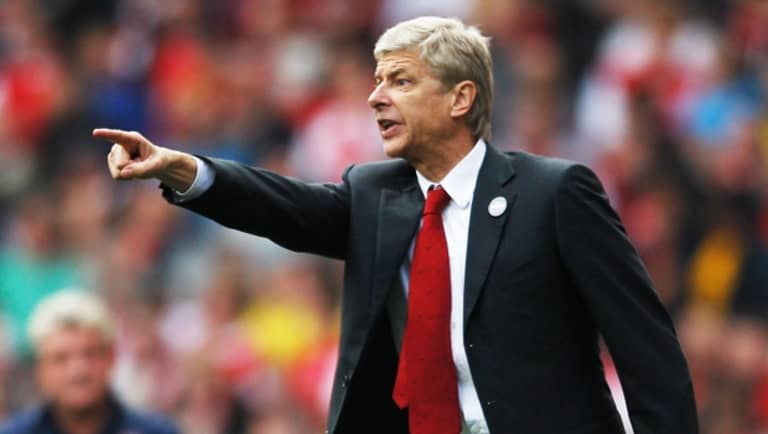
Gazidis is about as inside a man as you’ll find in the big leagues of Europe. He knows MLS intrinsically, arguably better than any living person on the continent, and he’s the top dog at a club that needs no introduction. Few people on this planet can say that over the course of an afternoon, they had a chat with both Arsène Wenger and former NFL Commissioner Paul Tagliabue.
That doesn’t necessarily mean his 14 years of experience in helping to get MLS off the ground prepared him for the daily rigors of working in what is one of the most pressure-packed environments in sports.
“You’re part of such an enormous social and cultural institution and you’re a caretaker for a short period of time,” he says of his new gig. “You’re a custodian for a set of values that are enormously powerful to people. There’s an awesome sense of responsibility that goes with that.”
And an enormous amount of pressure, too, which Gazidis says he expected when he took the job three years ago – at least intellectually. Arsenal’s trophy drought – about to enter a seventh year – has dragged on the fan base, who aren’t shy about expressing their feelings. And the swirling British press has spared no opportunity to skewer the club, especially Wenger, who has been accused by many as being out of his depth as the game keeps evolving into a multibillion-dollar cash chase.
Gazidis is no stranger to the high stakes of the footballing industry, but still can’t believe the cries for the head of the Frenchman, who he said has “changed the way clubs operate and how they play the game.”
“There’s never been a thought of replacing one of the best managers in the history of the world,” he adds, citing Arsenal’s core values of staying calm and keeping a clear vision of their goals.
Under Wenger, of course, Arsenal have become famous for their shrewd ability to identify and cultivate young talent. Though they’re not spending the eight- and nine-figure transfer fees some of their European rivals are, it’s hard to argue with the club’s unique ability to tap new markets for talent.
Transatlantic ambition
That’s one reason many MLS fans were so excited that Brek Shea is currently training with the Gunners, an arrangement Gazidis says was a personal favor to US national team coach Jurgen Klinsmann, and one that received the final sign-off from Wenger himself. This doesn’t mean Arsenal are about to sign the FC Dallas star, Gazidis is quick to point out – but it is certainly a sign of future cooperation between Arsenal and MLS.
Gazidis’ own new boss is American tycoon and majority shareholder Stan Kroenke, who also owns the Colorado Rapids (as well as the NBA’s Denver Nuggets, the NHL’s Colorado Avalanche and the NFL’s St. Louis Rams). That puts Arsenal in direct link with American sports and particularly soccer, though Gazidis won’t make any promises to the level of cooperation between the two.
After all, that the Rapids’ last coach, Gary Smith, came from Arsenal’s ranks is a pretty good sign of resource-sharing. And if you’re holding out hope for an Arsenal tour of the US, don’t hold your breath just yet: Gazidis points out that the Gunners only left Europe for preseason for the first time in a decade this past summer, when they toured Asia.
But that incessant desire of MLS fans to be indoctrinated with schooling from the Old World is one of the greatest misconceptions out there, Gazidis says.
“It would be a mistake to think that MLS must replicate or try to replicate or even try to aspire to what exists over here,” he says. “MLS should aspire to its vision of soccer in the United States, which may be very, very different.
“MLS is stronger than it realizes and better than it realizes sometimes. I’m not a big believer in MLS looking to Europe for its answers. Does that mean it can’t learn? Absolutely not. I think there are a lot of things that MLS can learn from football around the world. But I also think there are a lot of things that football around the world can learn from MLS.”
A soft spot for MLS
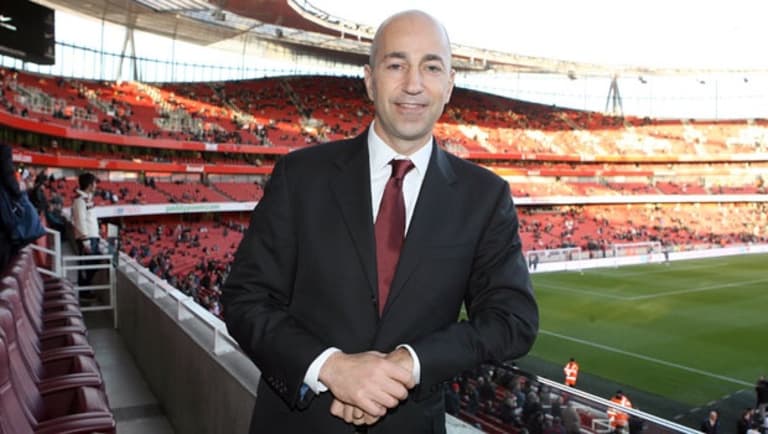
If anything, Gazidis says, the fact that the club went to the US to hire its top executive is proof of a desire to learn more from the American sporting market.
“That is a small thing, but quite significant, really,” he says. “To hire someone from the United States as the chief executive of a club like this I think shows the way this club thinks. It’s not thinking about where it’s been, it’s thinking about where it needs to go.”
Though Gazidis is now an Arsenal man through and through – the job is indeed all-consuming, he says – he still can’t help but gaze fondly across the Atlantic at the league he helped create. He admits he still reads up on MLS daily, and watches as many highlights as he can every weekend. And he is one proud papa.
“You forget, before MLS got up and running, we were called ‘Mythical League Soccer’ because no one believed we’d get off the ground,” he recalls. “After we played the first game, for the first six, seven years, every single serious examination of MLS, the question was, ‘How can this league survive?’ Now, those just simply are not questions that are on the radar anymore.”
Gazidis admits he’s amazed on a daily basis how healthy MLS is – the diverse ownership groups, the rash of soccer-specific stadiums, the big TV contracts and the improving level of play. That was a dream scenario for him back when he was toiling away drafting the particulars of the single-entity structure, the Collective Bargaining Agreement and the Designated Player rule.
Although he may be living in a completely different world these days, his sentimentality for MLS is clear. And that may be the biggest advantage to having a guy like him running the show at the Emirates.
“I’ll never feel like MLS isn’t a part of me,” he says. “I’ll always follow the league, I’ll always want it to be successful, I’ll always do whatever I can to help push it forward. I said when I left, and it’s proven true, I miss MLS far more than MLS misses me.”
Jonah Freedman is the managing editor of MLSsoccer.com. “The Throw-In” appears every Thursday.


